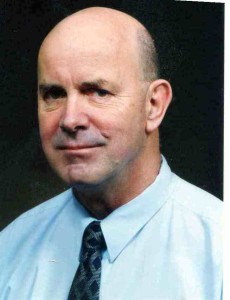
In a number of countries gambling venues had increased in numbers providing more opportunities for gambling activities. There have been minor surveys indicating more problematic gambling behaviours occurring within driving distance of casino venues.
In some Western countries an argument has been raised that gambling venues associated with resort facilities are of benefit to economically depressed communities; four example, many indigenous Reservations in the United States of America offer gambling resorts.
However, gambling has social and economic downside costs. These appear obvious and intuitive but are hard to measure in individual cases. One question for public health and other policy officials is whether the incidence of pathological gambling is actually increasing. The psychosocial estrangement and isolation of pathological gamblers is such that we really do not know what percentage of gamblers are waging bets in a pathological manner.
Policy officials can guess that in a expanding gambling environment the proportion of pathological gamblers is increasing. Similar gases can be made about possible detrimental effects of pathological gambling on individuals families and communities.
It is easier to identify social gamblers. People seeking entertainment wager only in small amounts.
In the middle of the 20th century was estimated in the United States that about 1% of the adult population were pathological gamblers.
Pathological gambling was included as a compulsive disorder in the DSM around 1980.
However, it would appear that public health officials consider that gambling activities have increased markedly in the last 20 years. More people are gambling more money. In parallel there is an increased concern about pathological gambling.
Experience in the criminal jurisdiction suggests that pathological gamblers become destructive in behaviour, they commit crimes and they run up large debts.
Recently there has been an increase in entrepreneurial activity in setting up Internet gambling opportunities. This type of gambling is even more anonymous.
The anonymity of pathological gambling is reminiscent of the difficulties which Miller and others had in assessing the effectiveness of Alcoholics Anonymous programs in assisting Alcoholics. The anonymity makes scientific studies very difficult.
So far it appears that the parental role modelling will have an effect on the gambling behaviour of children. Males tend to gamble more than females. There is probably a hidden adolescent gambling problem. Comorbidity of gambling with depressive disorders and other psychiatric illnesses will probably become more evident as we learn more about the problem. There are some early but seemingly unreliable twin studies which suggest that there may be familial (query obsessional) factors involved in pathological gambling.
In my own experience, pathological gamblers who are willing to attend and to stay with Gamblers Anonymous appeared to do quite well.
Pathological Gamblers tend to be psychosocially estranged and socially phobic.
They tend to be quite depressed except when they are gambling. The depressive symptoms tend to be relieved even when they are chasing losses.
As a group they are poorly motivated the treatment unless they are subject to interdiction by police regarding criminal consequences of their actions.
Seemingly premorbidly conscientious people will commit crimes against family, friends and employers in order to satisfy the compulsion to gamble.
Once they have been exposed (and criminal exposure in public terms is like being flogged raw) the risks of reoffending tend to reduce markedly. This often reflects the fact that the opportunities to access large amounts of money are lost it also in my opinion sometimes reflects the aversive nature of criminal proceedings. Some of these people respond to modern antidepressants are but it is not a general effect from what I can see. The unmet needs the treatment of their pathological gambling is unknown. The co-morbidity of pathological gambling with other disorders is largely unknown. There is a hidden form of gambling because of Internet behaviour. Much gambling is done in a solitary fashion with gambling machines.
In my opinion there appears to be a social double standard operating with gambling. I’m sure there is much room for studying the placement of gambling machines in gambling venues. The science of gambling machine placement appears to be as sophisticated as the placement of loss leaders and sales items/specials in supermarkets. The provision of isolated areas the gamblers with expensive machines with small payouts is certainly open to a question in my mind. In what has to ask whether there are sufficient timepieces visible in gambling venues. One asks is it true that there are lost leading machines providing small regular payouts at the entrances to gambling venues. Finally, I’ve always wondered about money laundering in gambling venues. Too often I do court reports on drug dealers who spend a great deal of time with extended family members at gambling venues and yet still manage to own a number of houses and fishing boats after often only being in the country for a decade or less. Perhaps law enforcement would say that some money laundering is tolerated in order to do social mapping of these individuals. The wipeout the publicity of various police investigations of a high profile nature in recent time leaves me with little confidence as to the benefits of observation of regular attendees at gambling venues.




 Dr Ian Curtis is a senior psychiatrist in full-time practice in Brisbane. Dr Ian Curtis is also a public speaker with over 30 years experience. Dr Ian Curtis as been involved in preparing and presenting workshops and lectures for Queensland Health, the Queensland Police Service, the University of Queensland Medical School, and Brisbane Churches. He has also lectured at international venues in China, India, and the USA.
Dr Ian Curtis is a senior psychiatrist in full-time practice in Brisbane. Dr Ian Curtis is also a public speaker with over 30 years experience. Dr Ian Curtis as been involved in preparing and presenting workshops and lectures for Queensland Health, the Queensland Police Service, the University of Queensland Medical School, and Brisbane Churches. He has also lectured at international venues in China, India, and the USA.